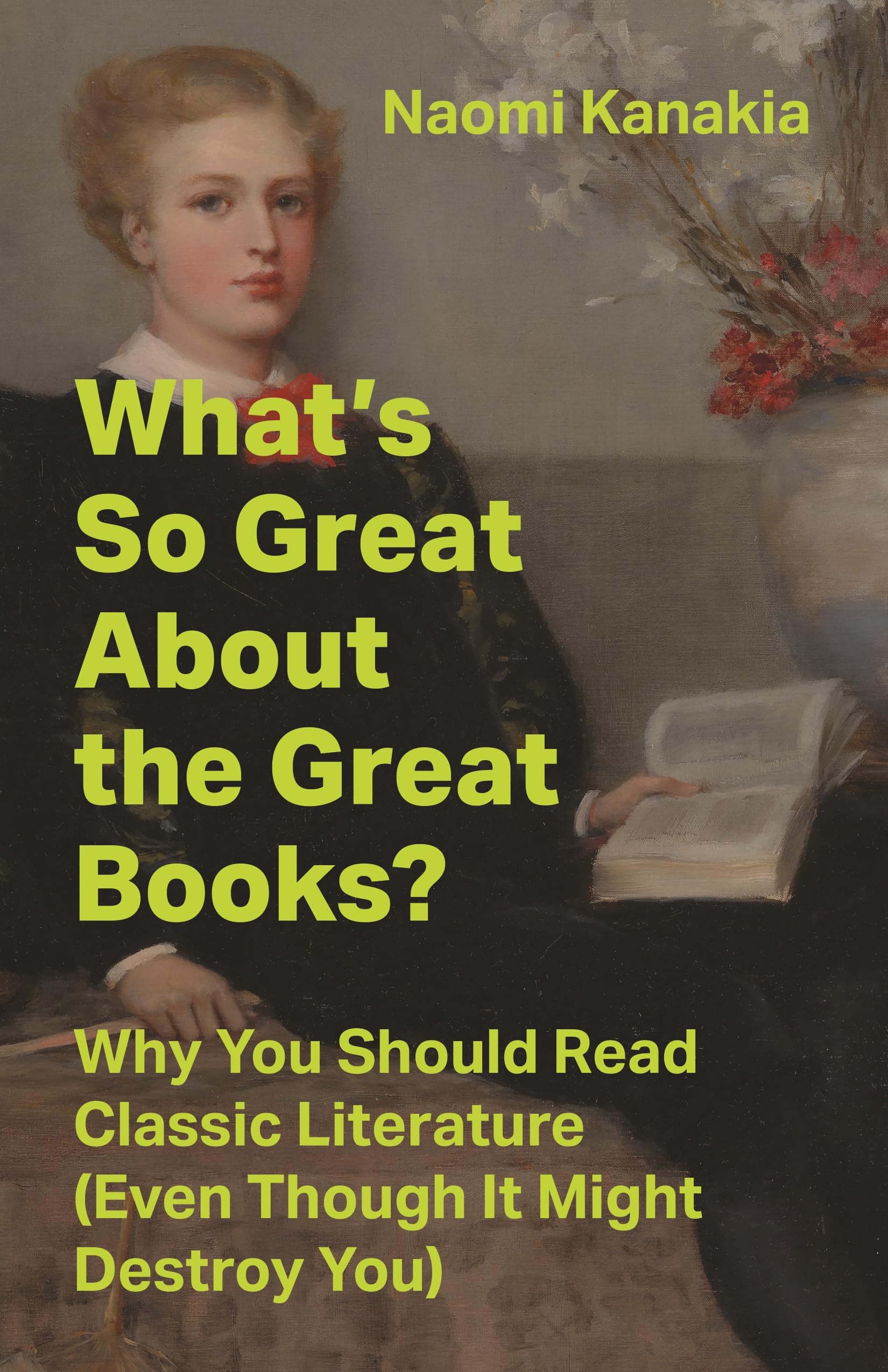A popular novelist and literary blogger answers those who claim the classics are too difficult, too problematic, and too white—and explains what we gain by reading them When she was in her early twenties, then-aspiring writer Naomi Kanakia set out to read the Great Books—humankind’s most highly regarded literary classics, representing “the best that human beings have thought or said,” as determined by the two elderly intellectuals who’d written the guidebook she consulted. After twenty years, she has made her way through about two-thirds of these books, and she’s found reading them to be an immensely pleasurable and insightful activity. Plato, Milton, Tolstoy, Proust, all those dead guys—their books have stood the test of time. But since beginning her journey, Kanakia has found that although reading the Great Books is part of a longstanding tradition of engaging with the thought of previous generations, it is also a highly contingent activity that arose out of a specific time and place, the brainchild of a small group of early twentieth-century popularizers associated with Columbia University and the University of Chicago. And people have always been skeptical about the idea of reading the Great Books, asking if this is truly a realistic or even desirable goal for the ordinary person. A more recent and growing group of Great Books skeptics asks if these works are too problematic, reactionary, and irrelevant to bother reading. Kanakia, a self-described “left-of-center person,” grapples with these objections, attempting to restore context for the Great Books even as she sticks up for them. Because books that expose us to fundamental truths about the nature of beauty and reality are worth fighting for. "A convincing case for Great Books as the road to self-discovery and moral action." ― Kirkus Reviews “Naomi Kanakia is not afraid of greatness. In a searching series of question-driven chapters, she renews a lifetime reading plan for the twenty-first century reader. While frankly acknowledging that ‘there is no such thing as a universal classic,’ this volume speaks to ‘a deep hunger' for the greatness of books—and in doing so, reopens a library for the autodidact in all of us.”— Scott Newstok, author of How to Think like Shakespeare “Naomi Kanakia’s deep love and knowledge of classic literature make her the perfect guide for readers who are just beginning the adventure of reading the Great Books or a charming companion for those who have been reading them all their lives. What's So Great About the Great Books? is practical, honest, straightforward, sensible, and amusing. It’s exactly what we need right now.”— Henry Oliver, author of Second Act and the literary blog The Common Reader “A beautifully reasoned, deeply personal exploration that restores humanity to the Great Books and reminds us why stories continue to matter across centuries.”— Sam Helmick, president, American Library Association “If you've ever wanted to read the Great Books, or ever wondered why you should, this is the book for you. Personal, humorous, and intimate, What’s So Great About the Great Books? gives us a great gift: a grounded guide to the classics, and a new standard for introducing these books to modern readers.”— Jared Henderson, author of the blog Commonplace Philosophy “Is reading the Great Books worth the shame, the difficulty, and the problematic politics that surround them? Naomi Kanakia, a fearless writer who educated herself on the classics, argues that these texts offer an unflinching honesty that cultivates the aesthetic sense needed to navigate life’s moral complexities. This personal, pragmatic defense reclaims works from Homer to Tolstoy for every individual curious to find the treasure within their pages.”— John Kaag, author of American Philosophy: A Love Story "If there's one thing our culture needs, it is people from all walks of life reading more and better books. If talk of Great Books seems stuffy and overheated, Naomi Kanakia's voice—clear, matter-of-fact, and brave—opens the windows and lets the breezes in.”— Zena Hitz, author of Lost in Thought “Naomi Kanakia’s treatment of the Great Books is deviously casual and unassuming. But don’t be fooled: it’s a deeply informed, incisive, and far-reaching argument for why Great books are worth the effort they demand, why they are, indeed, great, and why their greatness is inseparable from their problematic character. There is no better introduction to why the Great Books matter and how to start reading them than this book.”— Roosevelt Montas, author of Rescuing Socrates Naomi Kanakia writes a popular literary blog, Woman of Letters , that’s been praised by The New Yorker , Vox , and New York Magazine . She is also the author of three YA novels and a literary novel for adults.













